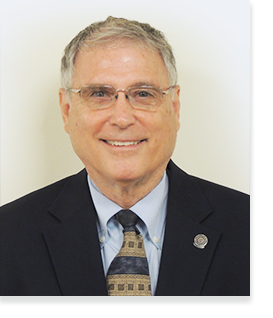|
Unpacking the Power of Credentials

|
At Workcred, we talk a lot about the importance of transparency and collaboration when it comes to understanding the value of credentials, but what is the true return on investment of credentials? What do the credentials mean to workers and employers? For starters, we need quality insights and data from the people who
represent and work in the industry.
The great news is that we’ve set efforts in motion with a few valuable resources and efforts that showcase the value and promise of credentials.
|
Access New Resources from Workcred
Our latest publication, Examining the Return on Investment of Manufacturing Credentials, reflects the viewpoints of the people who have
earned credentials, the managers who oversee them, and the individuals that recruit them through a series of interviews at small- and medium-sized
facilities within the National Institute of Standards and Technology’s (NIST) national network of Manufacturing Extension Partnership (MEP) Centers. The outcome: We identified how employers and workers value credentials,
which credentials they value, and recommendations to support a highly skilled and efficient manufacturing workforce. The three-part report was supported by a grant from NIST MEP, and we are grateful for the collaboration.

In addition to having value in manufacturing, we know that non-degree credentials have the potential to expand access to engineering, support the knowledge, skills, and abilities of diverse learners, and strengthen the engineering education-to-workforce continuum.
We emphasize this case in the recently published International Handbook of Engineering Education in our contributed chapter, “Enabling a Skilled and Diverse Engineering Workforce with Non-Degree Credentials,” where we examine why
engineering educators should care about the potential of non-degree credentials in their courses, degree programs, and institutions.
For yet another resource, we’ve teamed up with Credential As You Go to develop the playbook Embedding and Aligning Certifications with Academic Programs, designed to explore the key issues associated with embedding and/or aligning certifications with academic degree
and certificate programs and provide information about the characteristics of certifications.
The resource also showcases case studies and examples of frameworks for the broader category of non-degree credentials, as well as questions to ask to help assess quality, among other guidance.

Heads Together: Exploring Trends and Solutions in Credentialing
In collaboration with the credentialing community and workforce development groups, Workcred’s September 2023 Credentialing Body Advisory Council discussions focused on the growth of microcredentials in postsecondary institutions and the opportunity for certification and certificate bodies to work with external partners to reach a broader audience. We are excited to help guide this goal as we continually seek opportunities to work with higher education to provide students with career-boosting credentials.
The council also continues to explore new trends and opportunities that can further the certificate and certification community, such as working with colleges and universities to offer students access to professional certificates. These programs provide colleges and
universities opportunities for their students to earn specific skills that are valued by industry—a key step in the right direction.
Keep Up with Workcred in Conversation
Stay up-to-date on the credentials conversation by tuning into our latest podcasts! On The Score Podcast I chatted with host Kathryn Baron about insights on the need for
both the academic and business communities to work together to develop a credentialed workforce that is successful both academically and in the workplace. And on Global Opportunity Forum’s recent podcast with George Westerman, I discussed evaluating the value of credentials.
That’s not all: Find out how employers are dismantling barriers to skills-based hiring by reading my discussion with Clayton Lord, director of foundation programs at the Society for Human Resource Management, who shared his perspective on how employers and job seekers can embrace the hiring shift.
Partnerships Open Pathways to Successful Futures

We’re hitting the road: Workcred will be in action as a promotional sponsor and featured speaker during the upcoming conference co-hosted by UPCEA and AACRAO, Convergence: Credential Innovation in Higher Education in Washington,
DC on November 1-3. We’ll present during the session Integrating Microcredentials into Undergraduate Experiences and examine how our partner, the University of Texas System, is integrating microcredentials into undergraduate experiences
through its partnership with Coursera as a way to provide learners with the skills, knowledge, and competencies most valued by employers.
Another session at the conference, Launching Effective Certification+Degree Pathways, will highlight community colleges, the Higher Learning Commission, and the League for Innovation in the Community College as
part of our three-year grant from ECMC Foundation. They’ll reveal insights on our collaboration to develop and launch Certification+Degree (C+D) pathways, with many pathways already enrolling learners. C+D Pathways,
aligned with both student goals and industry needs, involve embedding industry credentials into degree programs.
On November 9, I’ll join The Council for Adult and Experiential Learning annual conference in Baltimore as a panelist on Developing a Standard for Competence-Based Work-Place Learning Programs to talk about
the importance of a work-based learning standard – which stands to have a positive impact on workers/learners from underserved populations, since many of those individuals develop their skill sets while on the job.
We are happy to accelerate our efforts with a wealth of new resources, and ongoing opportunities with our dedicated partners. Cheers to a motivated year of progress for all!

Roy A. Swift
|
